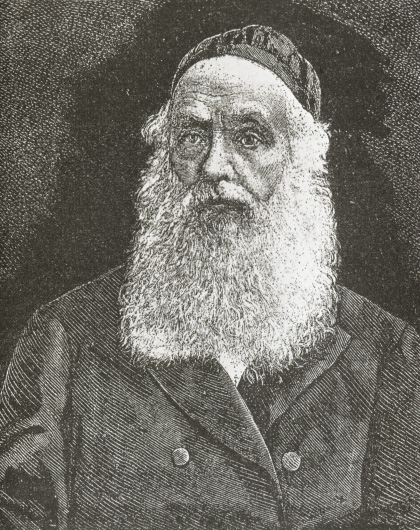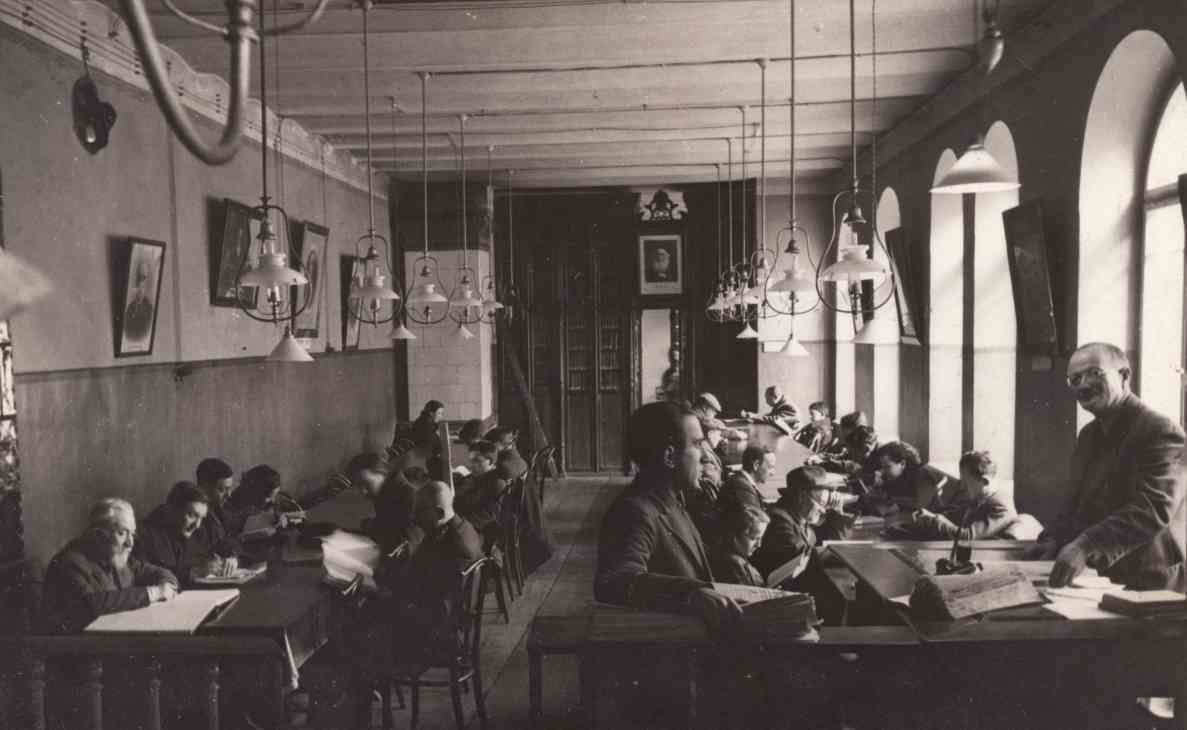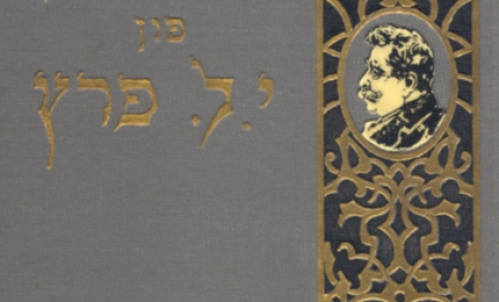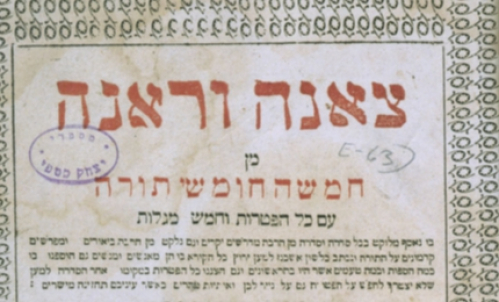Strashun Library Collection at YIVO
The Strashun Library of rabbinical and other works, often referred to as the most important library of Jewish learning in prewar Europe, was founded in the late 19th century in Vilna. Thousands of surviving books from this library, which was looted by the Nazis, now comprise the core of the YIVO Library’s rare book collections.
On June 5, 2017, the remnants of the Strashun library collection in Vilnius were added to UNESCO’s Memory of the World Registry.
Vilna has long been known as one of the great centers of Jewish intellectual life in Eastern Europe. Home to Vilna Gaon, the great luminary of traditional Judaism, the city grew to become an important center of the Haskalah, the Jewish Enlightenment. Also a center of Jewish printing, Vilna was home to the Romm Press, which was renowned for their fine editions of the Talmud.

One of Vilna’s many well-known intellectuals was one Matityahu (Matisyahu) Strashun. A highly-regarded maskil, he was not only a scholar of traditional Jewish literature, but also knew Greek, Latin, Hebrew, German, Russian, Polish and Yiddish. He was a fanatic bibliophile, and collected rare books and manuscripts, amassing nearly seven thousand volumes during his lifetime. Childless at his death in 1885, he willed his collection to the Vilna Jewish community in order that they create a Jewish public library. His wish was fulfilled and the Strashun Library was opened to scholars in 1892 and then to the public in 1902.
Inspired by Strashun’s generosity, a number of other Vilna intellectuals, among them Shmuel Yoysef Fin, Y. Behak, and Kh. L. Markon, donated their collections to the library. By World War I, the Strashun Library owned approximately 19,000 volumes. The Vilna University Library donated most of their Yiddish and Hebrew books to the collection in 1928. By 1935, the library had amassed approximately 35,000 volumes, including 150 manuscripts, five incunabula, and 400 books printed in the 16th century. It was in this manner that the Strashun Library grew to become the richest Jewish library in Eastern Europe.
The Library was open from 10:00am to 2:00pm and 5:00 to 8:00pm every day including Saturday (although writing was absolutely forbidden that day of the week in honor of Shabbat). It was, however, closed on major holidays. Books were not allowed to be removed, although board-approved researchers were entitled to take materials home. The reading room only had 100 seats and often readers would have to sit two to a chair. There was often a line to get in, and, on occasion, the library would have to shut its doors for safety reasons. The popularity of the Library was a phenomenon in and of itself.

The Library was open to all throughout periods of war, occupation, and other privations. Throughout the Library’s existence, it functioned as the gathering place for the most important intellectuals, journalists, political activists, and writers of the day. At one table you could find socialist ideologues, at another, rabbis and religious scholars. All were welcome and all partook of the intellectual zeitgeist of Jewish Vilna. Strashun’s prewar librarian, Khaykl Lunski, wrote that “the library mirrored Jewish life.”
During World War II, the Library building was destroyed, but not before most of the books were removed and shipped to the the Nazi “Institute for the Study of the Jewish Question” in Frankfurt-am-Main. Jews from the Vilna Ghetto were forced to sort and pack the books, along with other Jewish cultural treasures, in the YIVO building, which the Nazis turned into a looting depot. These same Jews, at the risk of their lives, hid some of the rarest books by smuggling them back into the ghetto or secreting them in other hiding places.
After the war the Strashun books that had been sent to Germany were recovered with the help of the U.S. Army and sent to YIVO in New York, along with the remnants of YIVO’s looted archives. What had survived from the hidden stash in Vilna soon fell under the aegis of Lithuania’s new Soviet overlords who indicated their intentions to destroy it. It was not until decades later, at the end of the 1980s during glasnost, that it was discovered that some of these books had survived that destruction, hidden by courageous Lithuanian librarians under the leadership of Antanas Ulpis.
The remnants of the Strashun Private Library and other surviving books from the Strashun and other Vilna Jewish libraries are now being preserved and digitized in both Lithuania and New York for the Edward Blank YIVO Vilna Collections Project, a 7-year international project that will result in a free access website. The initiative, which also includes the digitization of archival collections in both countries, is a partnership between the YIVO Institute for Jewish Research, the Lithuanian Central State Archives, and the Martynas Mažvydas National Library of Lithuania. Read more about the project.

